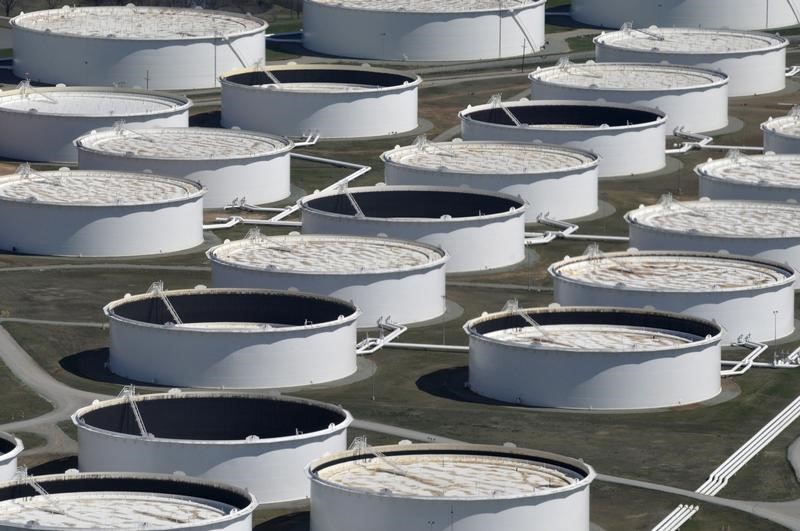By Scott DiSavino
NEW YORK (Reuters) - Oil prices were little changed in volatile trading as the market weighed Russia's comments about a possible meeting with Saudi Arabia that renewed hopes for a production freeze deal against a bigger-than-expected U.S. crude inventory build.
Brent futures (LCOc1) fell 2 cents to $46.93 a barrel by 12:52 p.m. EST (1752 GMT). U.S. crude (CLc1) rose 7 cents, or 0.2 percent, to $45.88 per barrel.
That followed a near 6 percent price surge on Tuesday on news the Organization of the Petroleum Exporting Countries would renew efforts to limit production ahead of its official meeting in Vienna.
Russia said it was ready to support OPEC's decision on an output freeze and sees big chances that the oil producers' group can agree on the terms of the freeze by Nov. 30, Russian Energy Minister Alexander Novak said.
Meanwhile, the U.S. Energy Information Administration said crude stocks increased for a third straight week and rose by a bigger-than-expected 5.3 million barrels last week, topping analysts' 1.5 million-barrel build in a Reuters poll. [EIA/S]
"Fundamentals are weighing on oil prices following the release of the weekly oil inventory report from the U.S," said Abhishek Kumar, senior analyst at Interfax Energy's Global Gas Analytics in London.
"Price volatility will increase as we approach the OPEC meeting scheduled for Nov. 30, but markets will not ignore fundamentals," Kumar said.
Venezuelan President Nicolas Maduro said he will meet with OPEC secretary-general Mohammed Barkindo in Caracas on Wednesday to discuss the freeze.
A number of energy ministers from OPEC countries are also likely to meet informally in Doha on Friday to try to build consensus over decisions taken by the full group in September in Algiers, an Algerian energy source said.
Those informal meetings could include energy ministers from Saudi Arabia and Russia. But Iran's oil minister will not be attending, sending the country's OPEC governor instead, sources said.
"We see enough cooperation between these two oil power houses to keep a significant amount of OPEC premium embedded in the market," Jim Ritterbusch, president of Chicago-based energy advisory Ritterbusch & Associates, said in a note.
Dutch bank ABN Amro, meanwhile, lowered its oil price forecasts on Wednesday, expecting Brent and U.S. crude to average $50 a barrel in the fourth quarter.

"We estimate the possibility of an actual OPEC production cut as 50-50," said Hans van Cleef, senior energy economist at ABN Amro.